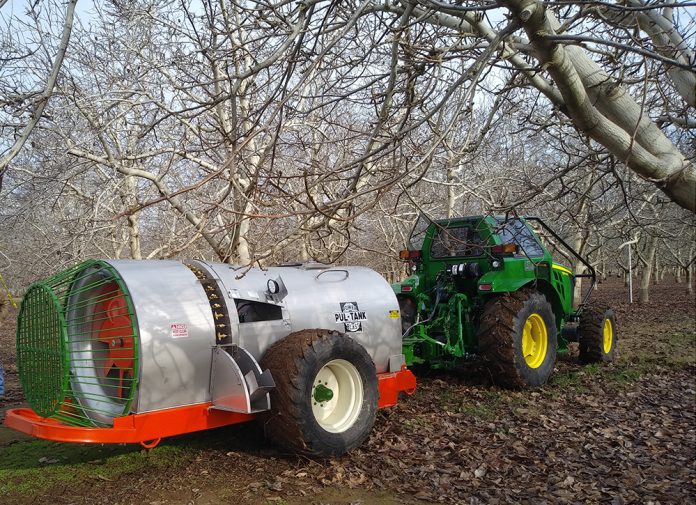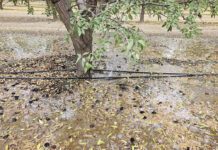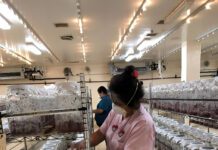
I have been working on regulatory and legislative issues in California for over 29 years now, and one might think businesses in California can’t be any more regulated than we are today. Well, this is California, and having the toughest pesticide regulations on the planet apparently just isn’t enough.
The Department of Pesticide Regulation (DPR) is now proposing to adopt new requirements and amend several other sections of existing regulations to address concerns with pesticide certifications. This proposal will affect the certification of commercial and private pesticide applicators (“certified applicators”), development and submittal of continuing education (CE) courses for pesticide applicator license or certificate renewal and supervision of non-certified applicators.
In summary, the proposed regulations will align California’s regulations with the revised federal regulations that were previously noticed in the Federal Register in 2017. According to CDPR, the proposed action will improve the competency standards for certified applicators using California restricted materials, which include federally restricted use pesticides (RUPs), improve certification standards for certified applicators, create additional certification categories for certified applicators, increase protection for noncertified applicators using restricted materials under the direct supervision of a certified applicator through enhanced pesticide safety training and standards for supervision of noncertified applicators, establish a minimum age requirement for certified and noncertified applicators using restricted materials under the direct supervision of a certified applicator and improve standards for CE courses. Overall, this could have a huge impact on private applicators.
Restricted Use Pesticides (RUPs)
In 1974, the United States Environmental Protection Agency (U.S. EPA) adopted 40 CFR Part 171 “Certification of Pesticide Applicators” to ensure that pesticide applicator certification program standards adequately protected applicators, the public and the environment from risks associated with the use of RUPs. Since then, U.S. EPA has updated 40 CFR Part 171 to enhance and improve programs that certify applicators of RUPs. RUPs are pesticidal products that U.S. EPA has determined have the potential to cause adverse effects to the environment and have the potential to cause injury to applicators or bystanders if not used properly and according to label instructions.
For these reasons, U.S. EPA requires RUPs to only be used by a certified applicator or someone under the direct supervision of a certified applicator. The Director is authorized to adopt a list of restricted materials based upon criteria including danger of impairment of public health; hazards to applicators, farmworkers, domestic animals and crops from direct application or drift; hazards related to persistent residues in the soil resulting in the contamination of air, waterways, estuaries or lakes; or hazards to subsequent crops. Because U.S. EPA and DPR designate pesticides as “restricted” for similar reasons, California statutes designate any pesticide labeled as an RUP as a California restricted material.
For the tree nut industry, RUPs include methyl bromide, sulfuryl fluoride, phosphine gas, aluminum phosphide and magnesium phosphide. State law authorizes DPR to regulate the use of restricted materials and to ensure that restricted materials are only possessed or used by, or under the direct supervision of, a certified applicator. This statutory scheme allows DPR to ensure individuals using or supervising the use of restricted materials have demonstrated a level of competency to do so safely and in a manner that will not result in harm to human health or the environment.
Due to California’s unique regulatory framework, DPR’s Licensing and Certification Program licenses and certifies applicators of California restricted materials, which include RUPs, as well as applicators who perform pest control for hire regardless of whether they use restricted materials or not. By aligning state and federal requirements, the proposed regulations will also affect users above and beyond RUP and restricted material use, including those who may apply general use products. In addition, because a pesticide is designated as an RUP or restricted material for similar reasons, DPR proposes to extend many of the supervision requirements required by U.S. EPA for RUPs to all California restricted materials.
Time to Study is Slim
The agricultural industry is concerned that there is not enough time for all the commercial applicators to study and pass their examinations as CDPR has indicated that the training materials and study guides will not be available until the regulation is finalized, which could be as late as July 2023.
The requirements would go into effect on January 1, 2024, leaving about six months to get thousands of applicators educated and certified. Furthermore, fumigants will now have to be applied under the direct supervision of a certified commercial applicator. Previously, private applicators who were certified could do it. Comments were submitted expressing these very concerns, but CDPR has not yet responded. So once again, California makes it just that much harder and more expensive to stay in business by finding solutions to problems that don’t exist. Please stay tuned to see if CDPR changes their approach on this one.

Roger A. Isom | President/CEO, Western Agricultural Processors Association
Roger is President/CEO of the California Cotton Ginners and Growers Association and Western Tree Nut Association. He brings over 30 years of regulatory and legislative advocacy experience, specializing in environmental and safety matters. Roger’s responsibilities include the management of both Associations’ staff and day-to-day operations. Roger is also the President of the Ag Energy Consumers Association (AECA), board member and Past President of the Ag One Foundation at California State University Fresno, and manages the Navel Orangeworm Action Committee (NOWAC).















